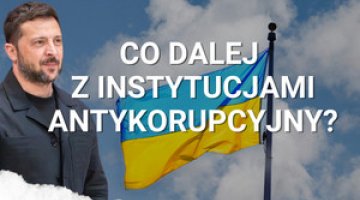Russia counteracts Ukraine’s moves towards the European Union
On 26 August intergovernmental talks were held in Moscow between the Ukrainian and Russian prime ministers, Mykola Azarov and Dmitri Medvedev. As the Russian government had previously announced, they used the meeting to present Ukraine with the possible consequences that await the country if it decides to sign an Association Agreement with the EU, as is planned for November at the Eastern Partnership Summit in Vilnius. The meeting was preceded by a blockade on 14-20 August on freight from Ukraine to Russia caused by introducing a detailed inspection of Ukrainian goods. The blockade was a practical demonstration of how Ukraine’s association with the EU could rebound on Ukrainian-Russian relations. Both the actions and statements made by the Russian government indicate that Russia will not accept Ukraine signing the Association Agreement with the EU, and is determined to prevent this from happening. On the other hand, the attitude of the Ukrainian government indicates that Kyiv hopes it will be possible to reconcile the Association Agreement with the country’s cooperation with the Customs Union (CU).
Russia’s position
After the meeting in Moscow, the Prime Ministers did not meet any media representatives, and also failed to issue a statement, which indicates that the talks did not lead to any agreement. Commenting on the results of the meeting, the Russian Deputy Prime Minister Igor Shuvalov said that European integration cannot be reconciled with Moscow’s proposal for Eurasian integration, and that if Ukraine decides to sign the Association Agreement and the Deep and Comprehensive Free Trade Agreement (DCFTA) agreement with the EU, it must take into consideration the fact that trade cooperation will become more difficult, with the introduction of enhanced customs scrutiny and duties on Ukrainian goods. President Vladimir Putin also made comments in a similar vein on 22 August, as did his advisor Sergei Glaziev the next day, threatening Ukraine with the annulment of the agreement on the free trade zone within the CIS.
Ukrainian reactions
At a cabinet meeting on 28 August, Prime Minister Mykola Azarov said that Ukraine could sign up to certain agreements of the Customs Union of Russia, Kazakhstan and Belarus (CU), and instructed the ministries to develop a mechanism for cooperating with it. At the same time, he confirmed that this mechanism would be subordinated to the DCFTA between Ukraine and the EU which would be part of the AA. Azarov was previously the only major politician in Ukraine who responded to the Russian customs blockade, blaming Ukrainian exporters for not maintaining Russian customs standards. President Viktor Yanukovych has not commented on Russia’s actions. This reaction stems from surprise at the measures Moscow has taken, as well as a desire to hide its poor cooperation with Russia from the electorate. The Ukrainian opposition is divided on how to interpret the conflict. Yuriy Lutsenko, a former head of the Interior Ministry in Yulia Tymoshenko’s government, and now an influential opposition leader, called for constructive support of the government until relations with Russia are settled. The leader of Svoboda, Oleh Tiahnybok, stated that there can be no compromise with the government. The leaders of Batkivshchyna (Arseniy Yatsenyuk) and Udar (Vitali Klichko) maintained that the best way to resolve the dispute with Russia was to sign the Association Agreement with the EU.
The Ukrainian government has deliberately downplayed the threat from Russia in public, and has been trying not to escalate the dispute; it has emphasised the need to regulate trade bilaterally, to ensure that similar conflicts do not arise again in future. It seems that Ukraine will seek to sign a specific agreement with the Customs Union, which would not be contrary to the provisions of the Association Agreement with the EU.
The consequences of Russia’s actions
Ukraine’s foreign trade depends on the export of its goods to Russia. In the first half of 2013, 24.7% of all Ukrainian exports, worth US$7.6 billion, went to the Russian market (a decrease of 13.5% compared to the same period last year). Ukraine mainly exports steel and parts for the machine industry, and it would be difficult to find other outlets for these products quickly. These sectors of the Ukrainian economy, as well as food products, are highly dependent on access to the Russian market. Russian restrictions on importing Ukrainian goods will contribute to a further decline in the value of Ukraine’s exports, and thus reduce government revenue. If trade with Russia moves from a duty-free regime to one based on WTO rates, the potential losses to the Ukrainian budget are estimated at around 1% of GDP, or US$1.7 billion.
Russia’s threats have added to Ukraine’s very poor and steadily worsening economic situation. The Ukrainian economy has been stuck in a recession for a year now; industrial output is declining, and the foreign exchange reserves are dwindling (at the end of July they amounted to US$22.7 billion; in the last three months they fell by 10%). Also, foreign investment is falling and the debt is growing (Ukraine must repay nearly US$6 billion in loans by the end of this year, of which more than half is owed to the IMF, and it is unlikely that a new loan agreement can be agreed with them this year). In addition, Ukraine will have to allocate or borrow about US$2 billion in the coming months to purchase natural gas from Russia, to prepare the country for the heating season and ensure the trouble-free transit of gas through its own transmission network to Europe.
Russia’s objectives and instruments
The priority objective of Russian policy towards Ukraine is to prevent the latter from moving closer to the EU, and instead to integrate it into the Customs Union of Russia, Kazakhstan and Belarus. In the context of the forthcoming summit in Vilnius, Russia’s minimum goal is at least to postpone the signature of the Association Agreement with the EU, and ultimately to move Ukraine’s integration policy back in Moscow’s direction. We can expect Russia to continue exerting pressure on Kyiv over the next few months. One way in which it may do so is to bring up once again the issue of access to the Russian market for Ukrainian goods of different categories or selected manufacturers. Many facilities which are essential to the Ukrainian economy still function as elements of the production cycles which existed in the former Soviet Union (such as aerospace and shipbuilding), and their products can only be used in Russia. For example, in an interview with the Kommersant newspaper on 22 August, Deputy Prime Minister Dmitri Rogozin announced the possibility of breaking off cooperation with Ukraine on the production of the An-124 Ruslan transport aircraft.
Another important instrument of possible pressure which Russia has at its disposal is connected with payment for the supply of natural gas to Ukraine. In January of this year, Moscow issued Kyiv with a bill of US$7 billion for gas not collected in the previous year. A similar move can be expected for this year.
Russia may also try to influence the Ukrainian public directly by threatening to restrict the movement of people (by removing the privilege of travelling to Russia on the basis of identity cards, or introducing visas) and access to the labour market (in 2012 Ukrainian migrants, whose numbers are estimated at between 1.3 million and 3 million, sent almost US$2.7 billion from Russia to Ukraine).
It should also be noted that most of the sanctions which Russia could use against Ukraine would also hit Russian businesses, and if they went on for a long time, Kyiv could be motivated to seek alternative markets. It thus seems likely that the sanctions will be selectively and temporarily applied. The scale of Russia’s actions also depends on the EU’s willingness and ability to grant Ukraine real support both before and after the possible signing of the Association Agreement.
The measures Russia has taken against Ukraine have once again revealed the weakness of the organisational structure of the Customs Union of Russia, Kazakhstan and Belarus. Against Russia’s intentions, Belarus has not joined the sanctions against Ukraine, and Kazakhstan has applied them to only a very limited extent (by introducing a ban on poultry imports from three Ukrainian producers).
Between the Customs Union and the European Union: the possible scenarios
It is still difficult to assess whether Ukraine will bow to Russian pressure and seek to delay the signing of the AA. Also, the EU member states have not taken a unanimous position on whether Ukraine should sign the AA. A key factor determining the conduct of the government in Kyiv is the presidential elections scheduled for 2015. The bad economic situation would seem to justify accepting Russia’s offer, which in exchange for economic preferences would assume Ukraine’s withdrawal from the agreement with the EU and its accession to the Customs Union. Agreement with the EU, meanwhile, implies economic benefits in only the medium and long term; and in the short term, it would mean losses associated with opening up Ukraine’s market, as well as possible retaliation from Russia. However, the Ukrainian government’s statements so far suggest it is determined to stick to the European course. Any radical shift in Ukraine’s foreign policy could be seen as a sign of weakness and lead to a loss of face. It is also possible that this would exacerbate the domestic political conflict and spark social unrest. We may also assume that Yanukovych sees Ukraine’s membership in the CU as a threat to his own power. Signing the AA would probably require Tymoshenko’s release from jail, or allowing her to travel abroad for medical treatment, among other moves. Such a decision would also involve a considerable loss of face, at least the way Kyiv would see it. We can expect the government’s real intention to become clearer when the Ukrainian parliament’s autumn session begins on 3 September. By the end of this month, the parliament will have to pass a number of laws (including holding by-elections in 5 single-member constituencies) in order to meet the EU’s remaining criteria for signing the AA. In a speech marking Independence Day on 24 August, President Yanukovych stressed that the Association Agreement with the EU will be an important stimulus in modernising Ukraine along European lines.





